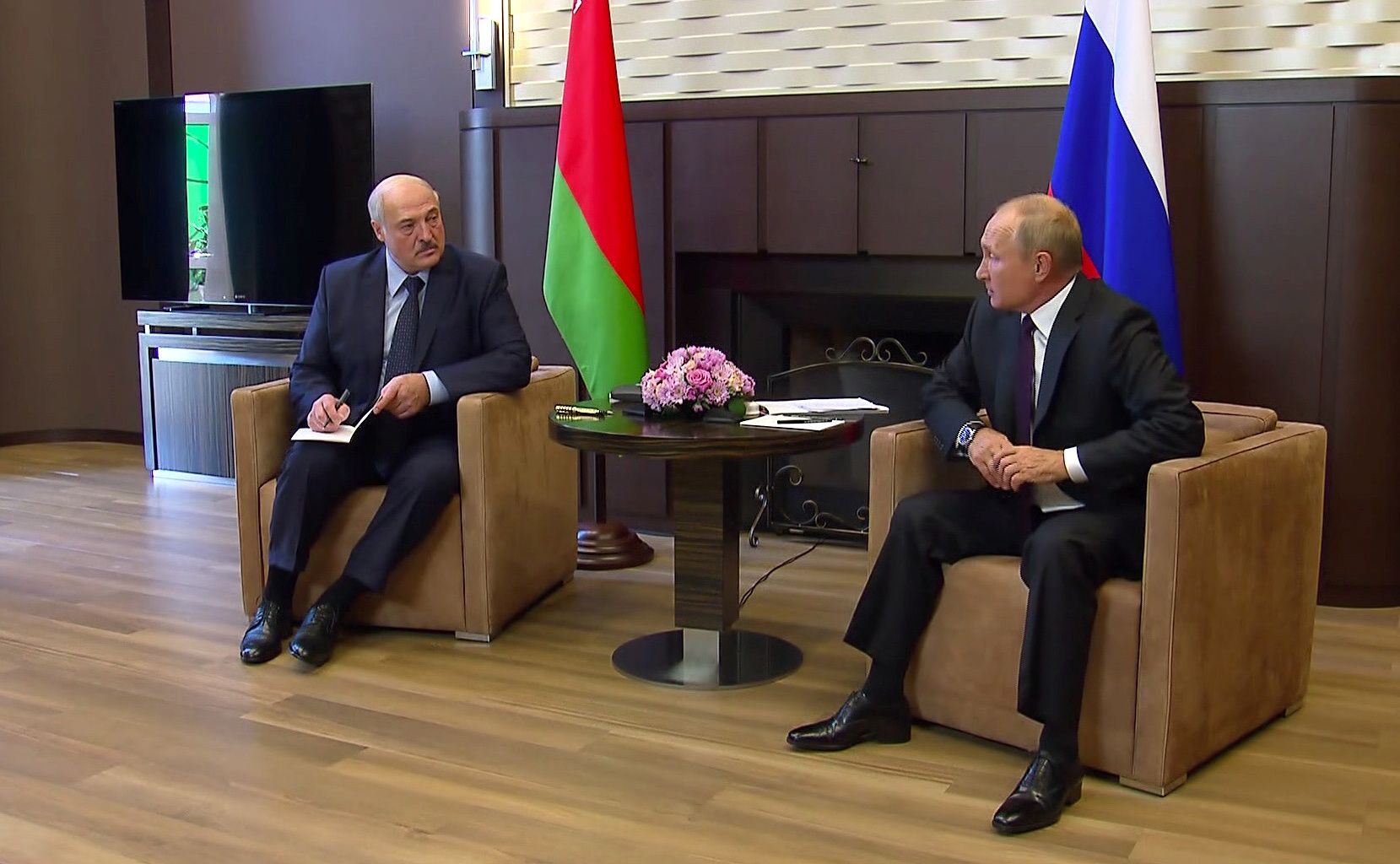News
September 15, 2020
Putin's strings attached: As protesters continued to throng the streets of Minsk, Belarus' strongman Alexander Lukashenko traveled to Moscow earlier this week to seek support from longtime frenemy Vladimir Putin. During a meeting in which body language told much of the story — the burly Lukashenko uncomfortably beseeching Putin who sat stone-faced in a dread manspread — the Russian President said he'd throw his Belarusian counterpart a $1.5 billion emergency loan. But he also pressured Lukashenko to open the way to fresh elections. That's something that the Belarusian president has resisted so far — after all, the current unrest came in response to his rigging of the August election, and it's hardly clear that he would win a redo. That may be precisely the point, from Putin's perspective. He has disliked Lukashenko for years, but the last thing he wants is for street protesters to depose him, which might give Russians some crazy ideas of their own. But a reasonably fair vote might be just the way to get rid of Lukashenko. What's more, the Belarusian opposition has been careful not to alienate Russia, meaning a change of power wouldn't necessarily hurt the Kremlin's interests. What will Lukashenko do? $1.5 billion can buy a lot of vodka and saunas.
Final verdict on Ivorian election: Ivory Coast President Alassane Ouattara can run for a third term despite a constitutional two-term limit, the country's top court has decided. The ruling also banned former President Laurent Gbagbo from seeking the presidency in next month's election, and cleared the way for Henri Konan Bedie — another former president and coup leader — to be the main opposition candidate against Outtara. Nearly 80 people have died in violent street protests in the Ivory Coast since Ouattara announced he would run again after his handpicked successor, Amadou Gon Coulibaly, suddenly died in July while serving as prime minister. Outtara has been in office since 2011, when he took power following a brief yet bloody civil war that erupted after his predecessor Gbagbo refused to accept an election result. Whoever wins, expect more political instability in Francophone West Africa's largest economy.
Asian recession for 2020: Developing economies in Asia and the Pacific (basically all except Australia, Japan, New Zealand, and South Korea) will, as a group, experience a recession this year for the first time since the early 1960s, according to the latest update from the Asian Development Bank. ADB projects that the regional economy will contract 0.7 percent in 2020 and grow again 6.8 percent next year, confirming that the region's economic recovery from the coronavirus pandemic will be more gradual (in the form of an L or swoosh) rather than what wonks refer to as the more optimistic "V-shaped recovery." Some economies will perform better than others though: China's is expected to grow by 1.8 percent in 2020, while India's will decline by 9 percent, and most Asian economies that are highly reliant on tourism revenues — such as the Philippines and Thailand — will suffer double-digit declines. Right now, ADB views a prolonged pandemic as the biggest risk for developing Asia's economic recovery from COVID-19, although the bank also says to watch the economic fallout of the US-China rivalry over technology and trade.More For You
An employee works on the beverage production line to meet the Spring Festival market demand at Leyuan Health Technology (Huzhou) Co., Ltd. on January 27, 2026 in Huzhou, Zhejiang Province of China.
Photo by Wang Shucheng/VCG
For China, hitting its annual growth target is as much a political victory as an economic one. It is proof that Beijing can weather slowing global demand, a slumping housing sector, and mounting pressure from Washington.
Most Popular
Two Iranian motorcyclists stop in front of the burned East Tehran General Directorate of Tax Affairs headquarters in Tehran, Iran, on January 21, 2026.
Photo by Morteza Nikoubazl/NurPhoto
30,000: The estimated death toll in Iran during the protests at the start of the year, per local health officials, underscoring the scale of the Islamic Republic’s crackdown on its own citizens.
The World Health Organization (WHO) headquarters is seen in Geneva, Switzerland, January 28, 2025.
REUTERS/Denis Balibouse
Seventy-eight years after helping found the World Health Organization (WHO), the United States has formally withdrawn from the agency, following through on a pledge President Donald Trump made on his first day back in office.
Mastercard Economic Institute's Outlook 2026 explores the forces redefining global business. Tariffs, technology, and transformation define an adaptive economy for the year ahead. Expect moderate growth amid easing inflation, evolving fiscal policies, and rapid AI adoption, driving productivity. Digital transformation for SMEs and shifts in trade and consumer behavior will shape strategies worldwide. Stay ahead with insights to help navigate complexity and seize emerging opportunities. Learn more here.
© 2025 GZERO Media. All Rights Reserved | A Eurasia Group media company.
